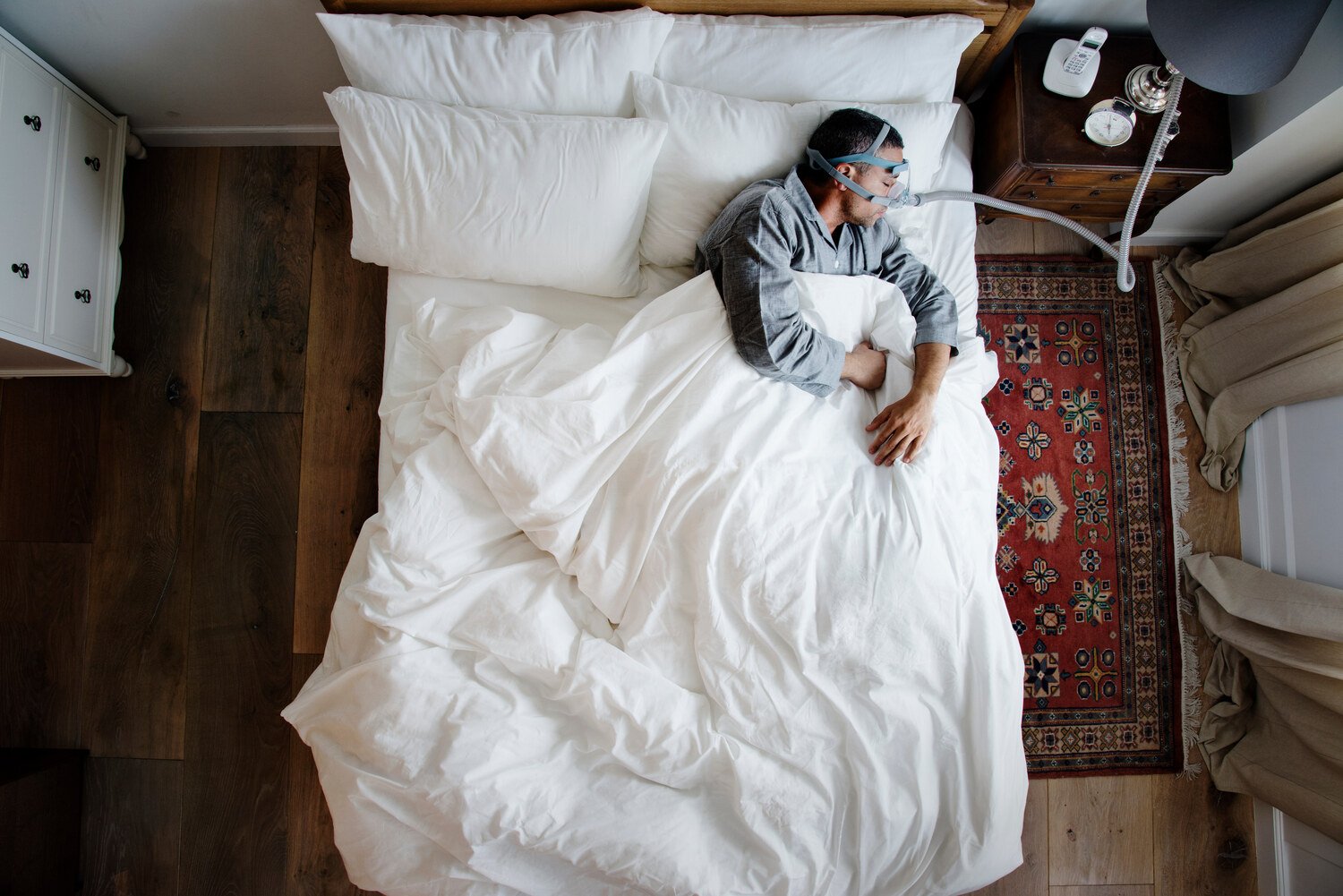Recent Posts
Categories
How to Win a Sleep Apnea VA Claim: Pro Tips for Best Results
There are more than 1.7 million veterans with service-connected sleep apnea conditions, and it’s become a significant concern for veterans across the country. However, the VA denies many of these sleep apnea claims stating several non-service-related risk factors or causes.
To win a sleep apnea VA claim you’ll need to follow these steps carefully:
- Have a strong diagnosis from a doctor and a sleep study supporting it.
- Use detailed records to show the incident, injury, or illness that occurred because of service and contributed to the sleep apnea.
- Get a medical link/nexus letter from a VA approved doctor.
- Submit your claim along with all of the documentation.
Following these steps will give you the best shot at being approved for your sleep apnea claim. But that doesn’t guarantee approval. Below we break down more of this process so you can have the best chance of being approved.
Proving Sleep Apnea is Service Related
For the VA to approve a claim for sleep apnea or any other medical condition, you’ll have to prove that the condition is specifically related to your service in the military. Service-connected medical conditions are eligible for disability compensation.
There are two categories to consider when working to provide proof that your sleep apnea is caused by military service.
Primary Service Connection
To establish a primary service connection for sleep apnea related to your active duty, you’ll need three essential pieces of evidence.
- Strong diagnosis of the current condition confirmed by a sleep study
- An incident, injury, or illness occurring during active service
- A nexus or medical link that ties the diagnosed condition to the injury, illness, or active service event
Veterans must use their service records to demonstrate that their sleep apnea began during active duty. This can be done through service medical records or by providing a nexus (medical link) from a doctor, showing how the diagnosis connects to symptoms experienced during service.
It's important to note that a sleep study will likely be required both to qualify for and maintain benefits, even in cases of presumptive conditions. A doctor’s opinion alone may not carry much weight with the VA—they rely on concrete evidence. To strengthen your claim, be sure to undergo a qualified sleep study that meets VA standards.
Secondary Service Connection
Filing for a secondary service connection follows a similar process to a primary service connection. The key difference is that a primary service connection applies when a condition develops during active duty, while a secondary service connection applies when a condition arises due to an existing service-connected disability or develops sometime after leaving the military. In the case of sleep apnea, secondary service connections are especially common.
To receive benefits for a secondary service connection to sleep apnea, veterans must:
- Have an established service connection for sleep apnea
- Be diagnosed with a primary condition that could induce sleep apnea
- Provide evidence establishing a nexus between sleep apnea and the primary condition
With the tests, nexus, and medical documentation you’ll be able to submit your claim to the VA for a secondary service connection.
Health Conditions that Can Cause Sleep Apnea
There is a seemingly endless list of conditions and disorders that can indirectly cause sleep apnea in veterans. Here are some of the most common:
- Chronic pain
- Hypertension
- PTSD
- TBI
- Neck or upper airway injuries
- Rhinitis or sinusitis
- GERD
- Migraines and headaches
- Exposure to toxic substances
- Chronic fatigue syndrome
Submit a Complete Sleep Apnea Disability Benefits Questionnaire (DBQ)
A sleep apnea disability benefits questionnaire (DBQ) is used by the VA to collect information and update your claim or help file your initial claim. Any veteran seeking disability benefits from the VA will need to complete one of these questionnaires.
If your condition has changed since the initial filing of your claim or you’ve gathered more details and notes from your doctor it may be wise to resubmit a new questionnaire. Note that these questionnaires are usually filled out by your doctor who will detail your symptoms, treatment history, severity of sleep apnea, and how it’s been affecting your day-to-day life. The questionnaire is a very important supporting document for your VA claim and helps them to evaluate your disability rating.


Possible VA Disability Ratings for Sleep Apnea
The VA separates sleep apnea into 4 different categories to determine benefits and how much a veteran’s health and day-to-day life is affected by the condition. Here’s how the ratings break down.
- 100%: Severe sleep apnea with complications including chronic respiratory failure, carbon dioxide retention, or tracheostomy.
- 50%: Requires the use of a CPAP or continuous positive airway pressure machine or other breathing assistance device whenever sleeping.
- 30%: Sleep apnea caused persistent daytime hypersomnolence (excessive sleepiness).
- 0%: Diagnosed with sleep apnea but doesn’t impact daily activities or require treatment.
Depending on the rating the VA assigns for your sleep apnea condition will determine how much monthly disability compensation you can expect to receive.
Can You Lose Your Sleep Apnea Disability Claim?
It is possible for the VA to take away your disability claim but only if your condition improves substantially over time. Like many diseases or disorders, sleep apnea can improve significantly with the proper treatment. While the VA cannot change your sleep apnea rating without hard data, if your condition does improve and you receive sleep studies confirming that they may change or drop your rating altogether if you no longer fit the criteria.
Possible Reasons Your Sleep Apnea VA Claim was Denied
Sleep apnea is not a presumptive condition for veterans and it is common for claims to be denied. In fact, more than a third of sleep apnea claims are denied by the VA. Some for good reason and others simply because there’s not enough proof. Here are some reasons that the VA denied sleep apnea claims:
- Lack of medical evidence
- Inadequate medical records, no sleep studies, missing documents to link the disorder to their military service.
- Sleep apnea developed after service
- When diagnosed after service it can be much more difficult to link sleep apnea to military service. This can be a good reason to get a lawyer involved and help you appeal the case.
- Not having a nexus letter
- A good nexus letter can make all the difference in getting a claim approved by the VA. Make sure you’ve gone through the proper channels to receive one from your physician.
- Veterans assuming the condition is presumptive
- Presumptive conditions allow veterans to easily receive benefits without needing to make as much of a case for them. Because sleep apnea is not a presumptive condition it does require quite a bit more work to get the claim approved.
YOU DON’T HAVE TO DO THIS ALONE
CONTACT VA DISABILITY LAWYERS
To learn more about our law firm, our services, how to access our veterans law resources, and more, contact us today.
You get a free consultation and we won’t charge you a dime until we’ve won your case.



